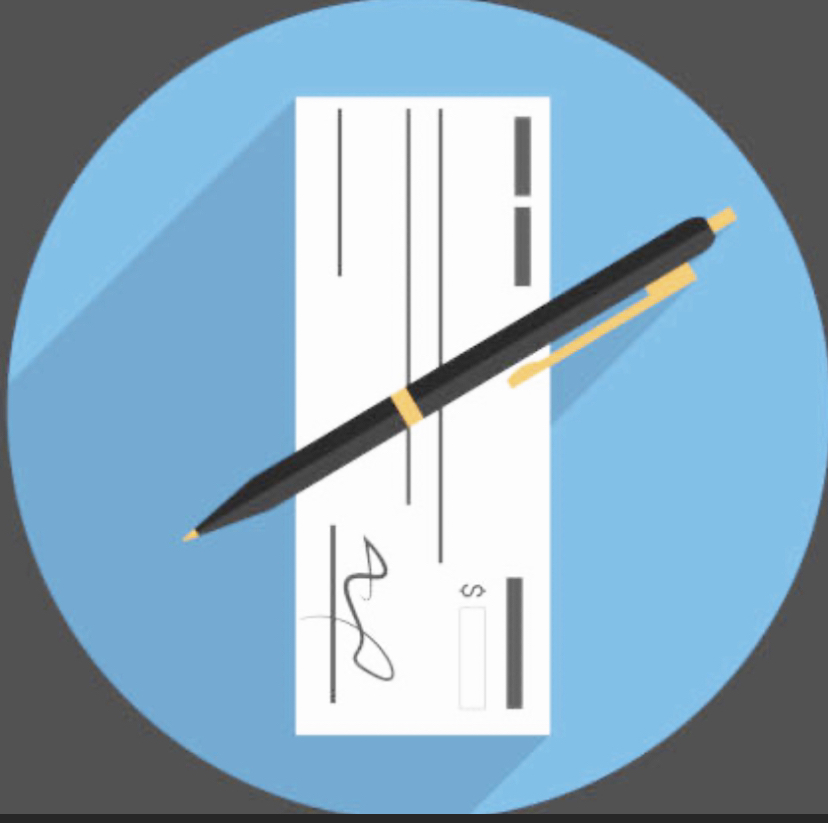Exposing Check Fraud: Understanding, Detecting, and Defending


What is check fraud?
Check fraud involves the unauthorized use of checks to deceive or steal from a bank or account holder. It can include forgery, altering checks, or creating fake ones to illegally withdraw funds. For example, a common method of check fraud is when a scammer obtains your bank account information, such as your routing, your account number, your signature, and all your personal information, and then uses this information to create fake checks that they would then deposit and attempt to withdraw from the ATM or from a bank teller to get money out of your account. We are going to delve into the three common check fraud techniques that are prevalent; insiders stealing of information from employers, check fraud through identity theft and mobile deposits, and check fraud in the form of online Job offers.
Insiders stealing information from employers check scam
Insider theft refers to employees or individuals with access to an organization’s information exploiting that access for personal gain. First, they look for a job with access to financial information. Things such as paychecks or other business financial information such as bank statements, or other bank information. The next thing that they’re going to need to pull off this scam is a burner account or a money mule. This is the person or the account that the fraud will be run through and will eventually take the fall when everything gets caught. So they usually obtain this through manipulation and tricking people into doing it without even knowing what they are doing.
At times, they initiate fraudulent activities using their accounts. The process involves replicating the style of paychecks by creating copies and modifying some details. To forge signatures, they adjust the sequence number to a nearby setting. Check amounts fall within the range of typical paychecks, and the payee is usually the individual managing the burner account. Once the preparation is complete, the next step is depositing the checks and attempting easy withdrawals, either directly at ATMs or through a money mule inside the bank for a more positive outcome. Upon check clearance, various methods such as Zelle, Cash App, Venmo, or debit card transactions are employed to access the funds.
Once the fraud is eventually caught, if it was a money mule that was used, they may attempt to have the money mule go into the bank and claim that it was fraud and they had nothing to do with it. But that never works because with check fraud, if you decide to do this in your name, no matter what story you give the bank. You will be liable for all the losses.
Things to do to protect your business from fake check scam
Reach out to your bank and look into a service called Positive Pay. Positive Pay is a fraud prevention service offered by banks. It involves businesses providing the bank with a list of issued checks, including details like check number, amount, and payee. When a check is presented for payment, the bank verifies it against the list. If there’s a discrepancy, the bank contacts the business for approval before processing the payment, helping to prevent fraudulent or unauthorized checks from being cashed.
The next thing is paying your employers or vendors through direct deposit. Just send that money directly to them so you get less paper flowing around so it’s less opportunity for people to steal your information. As always, set up bank account alerts and report anything suspicious immediately. And don’t let people use your accounts to deposit checks.
Identity theft and mobile deposit check fraud
scammers need your personal identification information. These are simple things such as your name, address, date of birth, social status, and all the information that they would need to open an account online. They can also obtain this information by just stealing your username and password. But this can also be obtained through the dark web inside of stealing information phishing, which is big or manipulation. To do the mobile deposit, they’re going to need a cell phone with a camera.
Once all this information is obtained, this is what the scammer does to pull off this scam. If they have personal information, they attempt to open an account online, and if they’re able to do that, they just start dropping checks into the account, through mobile deposit. If they were able to steal the username and the password, it’s even easier because they don’t have to open an account. They just have to log in and do all they want. So once they have access to the online account. They start printing fake checks and depositing them straight through their mobile device. Once those checks are clear, similar to the other scam, they transfer it with Zelle or the Cash app, or they just go straight to the ATM to do a withdrawal if they were able to get a card issued.
How to protect yourself against Identity theft and mobile deposit check fraud
It’s easy to defend against this scam and it’s all about being proactive. Set up bank account alerts, so if anything bad is going on with your account you get notified immediately. Always make a point to check your accounts daily, whether it be in the morning or the night. But just get into a routine of checking your accounts daily because the more active you are looking at it, the less likely something’s going to go on without you knowing about it. And if anything does look suspicious, report it immediately. Do not waste any time because the more time you waste, the more it’s going to look like you were in on it. And lastly, no one is above getting the information stolen. Everything is online, so the best offense is defense and awareness.
Online and remote job office check fraud
So how do they pull off this scam? First, they have to create fake job postings on a job board like Indeed, or LinkedIn, wherever people go to look for jobs. Second, they have to be good at social engineering tricking people and manipulating people. Third, they’re going to need stolen bank account information for them to run the scam or a burner account.
For a scammer to pull off this method, they got a trick, a desperate job searcher and to find the job of a lifetime. And now usually these jobs are remote, secret shoppers, or basic data entry jobs. But it always looks too good to be true, and when people are desperate and looking for work, they don’t look at any of the red flags that are coming up. So once the scammer has successfully convinced the individual that this is a real job, they start paying them through checks, and the checks are sent to the manipulated individuals in the mail for them to deposit into their accounts. The usual scam is for the individual to keep a portion and send the rest back through money transfer or a Gift card.
They might even be asked to purchase items with the stolen money. That will also be delivered directly back to the Fraudsters, scammers might even take it a step further and ask the individual to set up business accounts in their name to carry out even larger frauds. Eventually, the bank will catch on and freeze the operation and the manipulated individual will be on the hook for everything just like that.
How to defend against Online and remote job office check fraud
If you are looking for a job and a job offer seems too good to be true, more than likely it is if you’re getting paid by checks and you’re not sure what the company is or if you have never worked with this company before. Always go to the bank and get their opinion on the check. Many banks have systems that can verify a check and let you know if it’s good or not. Always research companies thoroughly before giving any of your information.




